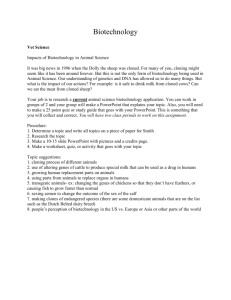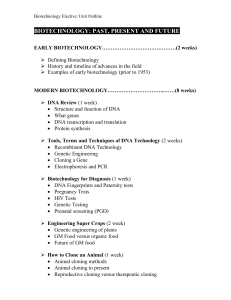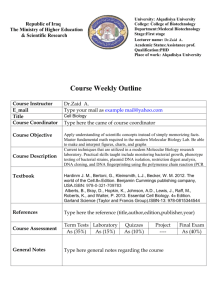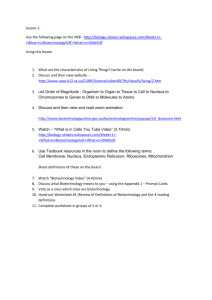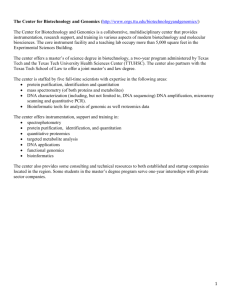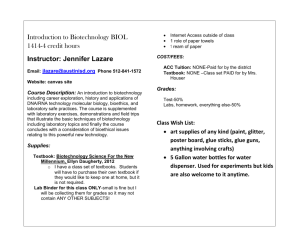Biotechnology Study Guide - Scorpion Science with Mrs. Page
advertisement
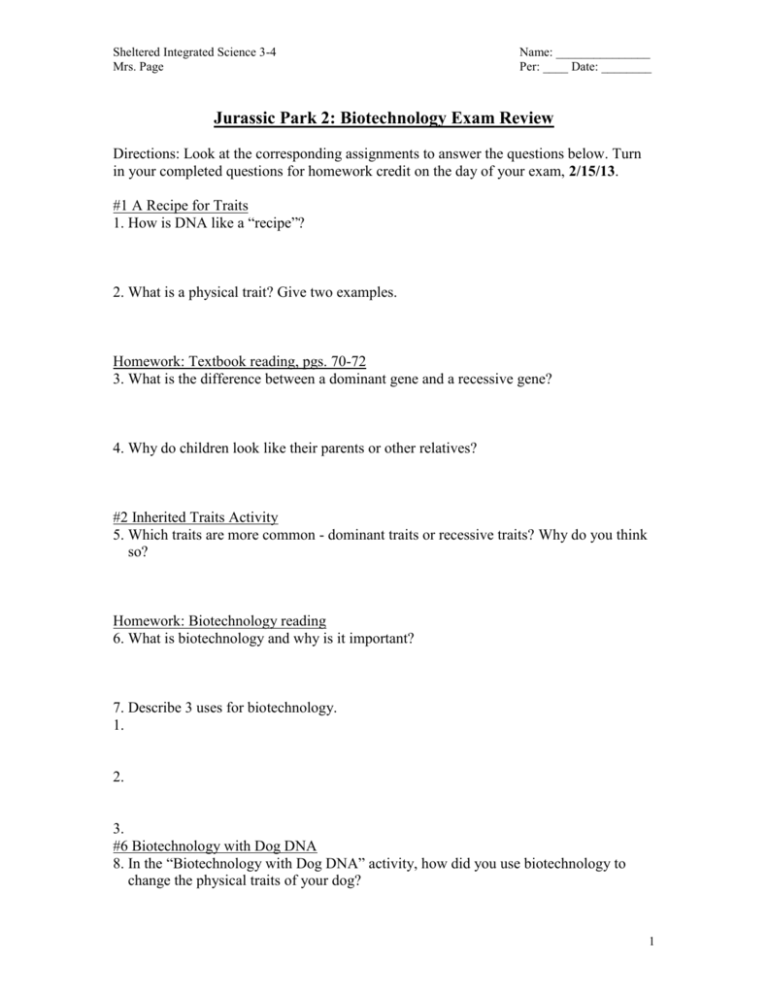
Sheltered Integrated Science 3-4 Mrs. Page Name: _______________ Per: ____ Date: ________ Jurassic Park 2: Biotechnology Exam Review Directions: Look at the corresponding assignments to answer the questions below. Turn in your completed questions for homework credit on the day of your exam, 2/15/13. #1 A Recipe for Traits 1. How is DNA like a “recipe”? 2. What is a physical trait? Give two examples. Homework: Textbook reading, pgs. 70-72 3. What is the difference between a dominant gene and a recessive gene? 4. Why do children look like their parents or other relatives? #2 Inherited Traits Activity 5. Which traits are more common - dominant traits or recessive traits? Why do you think so? Homework: Biotechnology reading 6. What is biotechnology and why is it important? 7. Describe 3 uses for biotechnology. 1. 2. 3. #6 Biotechnology with Dog DNA 8. In the “Biotechnology with Dog DNA” activity, how did you use biotechnology to change the physical traits of your dog? 1 Sheltered Integrated Science 3-4 Mrs. Page Name: _______________ Per: ____ Date: ________ #7 Let’s Clone a Mouse, #10 Cloning Dolly the Sheep, #11: Cloning Timeline 9. Why is Dolly the sheep so famous? 10. What is cloning? 11. Dolly was cloned by a process called somatic cell nuclear transfer. Draw and label a picture to show how Dolly was cloned. #8 Micropipeting Olympics 12. Why do scientists use micropipets? Biotechnology Notes & #9 Biotechnology Study Guide 13. What is recombinant DNA? 14. What is a plasmid, and what does it have to do with recombinant DNA? #10: Cloning in Focus 15. Use the chart below to list differences and similarities between embryo twinning and somatic cell nuclear transfer. (We did this question together as a class.) 2 Sheltered Integrated Science 3-4 Mrs. Page Cloning Name: _______________ Per: ____ Date: ________ Embryo Twinning Somatic Cell Nuclear Transfer Similarities Differences #12 Introduction to Transformation - pGLO Lab 16. What is transformation? (Use sentences or drawings to explain your answer.) 17. Fill in the chart below. Item Glow/Not glow? Explanation - why/why not? E. coli bacteria in petri dish pGLO plasmid not in bacteria E. coli bacteria with pGLO plasmid (transformed) 18. What actually made the bacteria glow? Write a sentence or draw/label a picture with arrows to show how we ended up with glowing cells. 3
